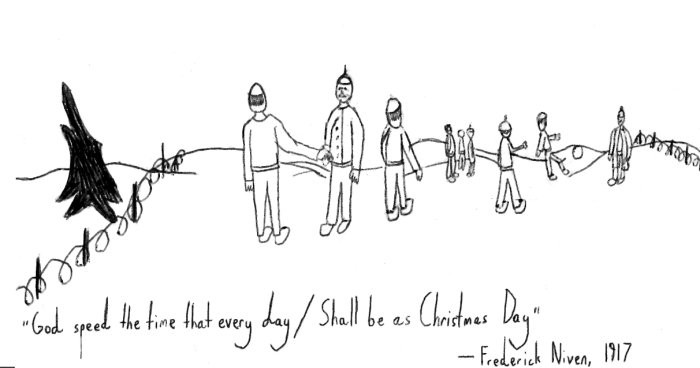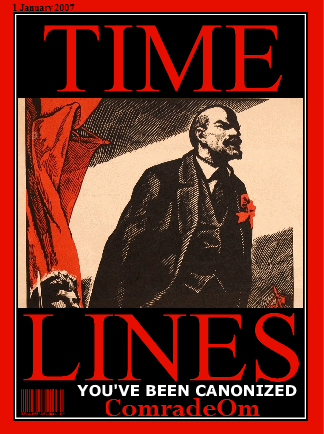[anchor=Jan2008-i1]
Une Noel de Tornade - A Failed Britannia Story...
by General_BT
[/anchor]
December 22nd, 1925
The mayor nervously continued his address as the new microphone system scraped, chattered, and made all sorts of racket in an attempt to drown him out. Mitterand found it rather amusing - the new technology the pompous old man had brought it was drowning him out. It appeared things made in the Old Country even were prone to failure - something that made Mitterand pleased. Personally he was tired of all the
Americain pompousness, the belief that everything that was either
Anglais or
Americain was infinitely superior. After all, hadn't the Greeks some four hundred years ago driven the forefathers of the
Americain from the continent to their "glorious isle" of
Angleterre?
Nonetheless the mayor's speech continued, describing the monstrous tornado that overtook their town some eight months before - a behemoth that had first been seen near the town of Sous-Caen, in Sainte Louis
province at one in the afternoon on March 25th. It then carved a path some 219
milles to the east-north-east, moving at an incredible clip of 73
milles per hour. It scraped the Earth in a path over a
mille wide, stripping grass from the ground, hurling cars, and demolishing homes. It took some three and a half hours for the beast to be sated, and some 693 people had died, but, as the mayor noted, the death toll could have been far higher, if it hadn't been for the
intendant and his efforts to save lives, and put out the fires that started in the rubble.
It was Mitterand's turn to blush. Partly it was from embarassment at being singled out - partly it was due to the fact that he'd never worn a "coat with tails" before, and felt terribly out of place. He wasn't alone - there were hundreds of people in Nouveau Paris that had lent a hand to their neighbor in crisis, and in that moment, it seemed the divide between
Americain and
Etranger had fallen away. The horrors of the Great War, the trenches criss-crossing old Europe, the bad blood over the suddenly flood of immigrants from what had been an enemy nation, all seemed forgotten.
Disaster had a way of doing that.
Yet such solidarity never remained. Mitterand could remember it was only one week after the tornado when they found the young
Etranger Pavlos Mitokalis murdered outside of town - a drunken brawl, where five
Natifs beat him to a pulp. THe old animosities, and bad feelings were back to normal.
The mayor's speech finally ended with its triumphant and overwrought conclusion, promising that the town's rebuilding would continue, thanks to generous offers of donation from people around the world, and companies like Gassiere Steel. Mitterand tried to hide the sweat that was starting to bead on his brow, as the words he'd dreaded since he'd been told he was invited to this dinner came out of the mayor's mouth.
"And now a word from our
intendant, Pierre Mitterand!"
---
"Georgios, if you need any help..."
"I'm fine, Hajnal... really," Georgios smiled at his youngest cousin, part in thanks, and part in annoyance. He resumed his work of hanging the mistletoe above one of the archways, and felt Hajnal's eyes following his every move.
He wasn't quite sure what made all of his female cousins think he was incapable of raising a child, or anything else for that matter, but their continued offers to help annoyed him to the core. It took almost all his civility sometimes to politely refuse their assistance - especially considering some did not take a refusal for a "no." Hajnal was a particular petite piece of troublemaking in that regard.
Yes, it'd been hard since that day. He and Arkadios had been lucky - they had a broken arm, a bloody nose, and more scratches than tomcat shared between them. Anastasia, Helena and Nikolaios had not been so lucky. The funerals had been hard, but he'd made it and Arkadios had made it, this far at least.
"When are you moving out from under Theophano's wing?" Hajnal pressed, and Georgios barely fought the urge to sigh aloud. "I'm sure she'll miss the extra help around the house since Renault..."
"Yeah, she will," Georgios said, momentarily remembering that trip to the morgue, one of many as the dead were counted that March night. "As soon as I get the next hundred
livres saved up," he said to the tenth person who'd asked that night, "and as soon as the winter's done.
Noel is pretty with snow, but it makes things horrible for building," he smiled thinly. "Then we're going to build on the same plot as before, and I'll put it up with my own two hands again. Your father, Venizelos and Thrakesios have all pledged to pitch in and help." He smiled. "We'll be under our own roof in no time."
"What about taking care of him when you're doing your work?"
Georgios couldn't hold himself back and rolled his eyes.
"I'm going to quit the
intendant's office, go into carpentry full-time, so I can be at home when he is."
"I think you're getting out just in time - I heard the Justice Ministry is putting new regulations on where
etrangers can work in the government," Hajnal replied. "Says that because they used to be some term - 'combatants' and 'enemy' or something - that they're banned from most government paid positions. I'm worried about Anathasios..."
"They always need railroad workers!" Georgios dismissed her concerns with a laugh, despite the inner fears in his own heart. He didn't have the heart to tell her that the regulations put down by Premier Thune and backed by the Governor-General and "good" King Henri back in Angleterre were part of the reason he wanted to do carpentry full time. Surviving and coping after that horrible day in the spring was hard enough. It only became harder now that the
Natif government was displaying the same arrogance towards the Hellenes as it did when the Great War started ten years ago...
---
Even as he spoke, Pierre felt the visceral feelings of that day rise in mind. His hands trembled slightly as he read his prepared speech, as a faint echo of the acid taste of panic that filled his mouth eight months before played in the recesses of his mind. Most of those gathered before him were in the side of Nouveau Paris that had only been side-swiped by the juggernaught - the mayor's house had only broken glass, Ms. Debardeau's home came away with some missing roof tiles.
So Mitterand made sure to tell them the other side of things.
How he'd watched the monstrous storm - so large that no one could tell it was a tornado - chew into the poor side of town. The side that was mostly filled with new
Etranger immigrants, not the richer, more established
Natifs. Of how he saw houses, churches, even people swept up into its terrible maw, only to be spewed across the countryside as so much loose timber and debris. Of the panicked drive down the hill and into a ruined town - the people in the streets, the walking wounded and the dead laying about. And above all, the smell of the smashed homes, the broken gas mains, and the freshly thrown mud that covered everything.
He looked at the steel magnate when he spoke of digging survivors out with his bare hands, of organizing a bucket brigade to stop fires from breaking out while they searched for survivors. Of pain and misery, and of the many who still had no homes. He realized that the
Natif probably hadn't seen any part of the Great War, seen dead
Etrangers alongside dead
Natifs. Once blow open, they were indistinguishable.
When he'd finished, he looked out at his audience and saw a mixed sea of faces. Some had looks of abject horror - the images of what he'd described playing faithfully in their minds. Some held looks of astonishment - the wonder of the storm and its images transfixed them more than the tales of devastation. And some, like Msr. Beaucerc sat idly amused at the often tongue-tied, flustered and embarassed
intendant. For them, the words did not sink in, other than a mild amusement, something to observe and then discard later in the night when a more palatable memory came along.
A polite pause greeted him as he stepped away from the podium, and back to his table, as waiters were already bringing out a fresh feast for them all.
---
"I'm sorry! I'm sorry!" Theophano hissed and grunted like a steam engine as she came out of the kitchen, her hands carrying a steaming tray. In its midst sat a partly blackened form that probably was a turkey, at some distant point. A host of others came behind her, carrying the various dishes everyone had brought for the family meal.
Noel was an excuse for all of them to come together for once... and even the act of bringing out food was one of chaos.
"Damn thing burned on me," Theophano kept apologizing, feverishly starting to cut the turkey, before giving up with another sharp curse. "Dammit! Renault could've cut it..." she snapped, her eyes starting to well up.
"Wait, let me try," Georgios reached forward, and started cutting the turkey with ease. Theophano marshalled her reserve, and kept herself to a sniffle. Not in front of the children. Never in front of the children. Arkadios already had a plate out, and once a piece of turkey was on it, Georgios handed it to his cousin. "To our wonderful cook!"
Plates were dished, banter echoed, and soon everyone had at least something. Most of it was simple. Some of it was badly cooked. But all of it was heartfelt.
---
"This looks delicious!" someone at the table twittered, and Mitterand nodded absently. The food before them was impressive and overdone, as far as Mitterand was concerned. By his face Beaucerc was used to something more lavish than spiced pig graced with a sauce Mitterand couldn't pronounce, the ubiquitous turkey, lamb, and more vegetables than Mitterand had seen in a year. The
intendant himself only had a slice of turkey, some carrots and peas, and a small piece of chicken. He didn't trust food he couldn't say by name.
After the last of the plates were served, the Bishop took to the podium, and asked all to bow their heads in grace, to thank God for the grace of another year. Pierre Mitterand, like all the others gathered in the massive, silent banquet hall, bowed his head and said grace. Less than a mile away, in a crowded home, Georgios did as well.
General_BT is a Fellow of the Tempus Society and author of Rome AARisen








